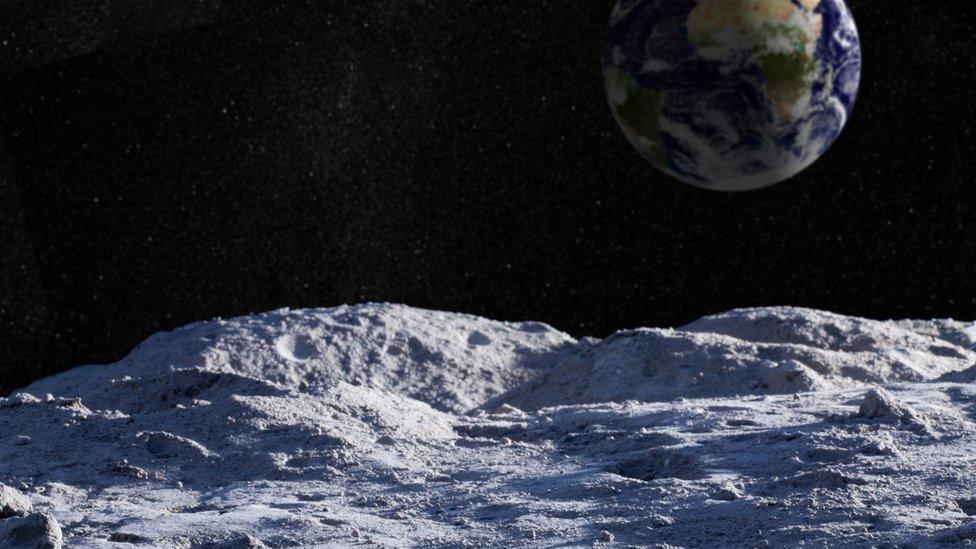Nasa is looking for companies to mine the Moon!
- Published
- comments

Nasa wants companies to collect Moon samples in exchange for cash
Nasa is currently on the lookout for companies who are up for travelling to space and mining the Moon!
The request may seem a little alien, but it's all for an important purpose.
The space agency wants to take steps towards building a marketplace where items from space can be sold and bought like other products.
So how would it all work? Well, Nasa says it would buy the samples companies bring back from the Moon. They'd pay between $15,000 to $25,000 for amounts between 50 to 500 grams.
"The requirements we've outlined are that a company will collect a small amount of Moon "dirt" or rocks from any location on the lunar surface, provide imagery to Nasa of the collection and the collected material, along with data that identifies the collection location, and conduct an "in-place" transfer of ownership of the lunar regolith or rocks to Nasa," said the agency's administrator Jim Bridenstine.
"After ownership transfer, the collected material becomes the sole property of Nasa for our use."
Nasa is looking to get humans back on the Moon by 2024
The plans are all part of Nasa's Artemis program which aims to send US astronauts, including the first woman, to the Moon by 2024. NThe agency says it wants to place humans back on the Moon in a sustainable way instead of astronauts being sent there for quick trips.
This would include making use of resources that are already on the Moon including the dirt on its surface which Nasa thinks could be used for construction and water ice which is believed to be in the Moon's south pole to be used as drinking water or rocket fuel.
Nasa's goal is that companies who take up the challenge would be able to retrieve the Moon samples and transfer of ownership to the agency before 2024.
Other space ventures could also be on the cards for Nasa including a trip to the red planet
The agency hopes the move will help prepare their teams for missions further afield.
"Right now, we're trying to prove the concept that resources can be extracted, and they can be traded," Bridenstine said in an online presentation after Nasa announced its plans. "And not just traded among companies or private individuals, but also among countries and across borders — private individuals in other countries."
- Published26 June 2020
- Published24 April 2020
- Published24 May 2020
